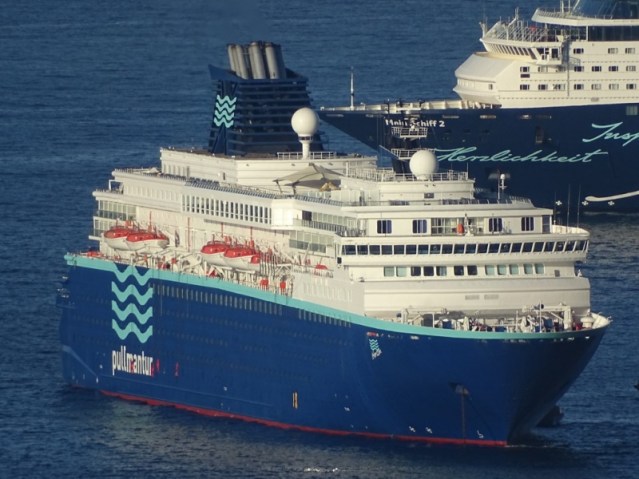
Cruise ship security jobs include protecting passengers and the ship against any possible threats. Although the work environment is safe and there are audio and video security systems, there are still risks to security on cruise ships. Unattended children is a common problem. However, there are also security screening processes that help to keep staff and passengers safe. Security officers must also keep a vigilant eye on situations outside the ship.
Qualifications
Qualifications for security on cruise ships vary by company, but generally require previous experience in law enforcement, hotel security, or military settings. Additionally, applicants must hold a valid license as a security guard from their state. Some companies also require additional training, such as Standards of Training certification and Watchkeeping for Seafarers (STCW) certification. It is helpful to have a college degree in security management, or a post-secondary certificate for security and surveillance. Candidates must demonstrate good communication skills.
The qualifications for security aboard cruise ships include knowledge of maritime law, maritime strategy, and codes of conduct. Most training programs will be focused on safety and security of cruise passengers and crew. Security officers will also learn anti-terrorism protocols, firearms handling and navigation.
Salary
One of the highest-paid jobs in the industry is security aboard cruise ships. The job entails securing the ship's entrances, screening passengers, and monitoring crew members and guests for proper behavior. Those with experience in security can progress to the role of Chief Security Officer.

The salary for security staff on cruise ships varies depending on the position. The Chief Security Officer is the ship's top security officer, and he oversees security onboard. He is responsible for creating and implementing security policies and for making sure that all security equipment is working properly. This job pays up to US$4500/month depending on your experience and qualifications.
Duties
While the duties of security personnel on cruise ships can vary from one another, there are some basic responsibilities that all security officers must fulfill to keep the ship safe. These include screening passengers as well crew members and their luggage. This might include using metal detectors to inspect handbags, and other luggage.
Safety officers aboard cruise ships must have a background in maritime law and security. For certification in this field, many cruise lines require security officers to attend maritime training school. These programs usually cover maritime law, maritime security policy and firearms handling. Commonly, security officers need to be certified in computer systems that are used on the ship as well as how to navigate their own ship.
Certifications
There have been many certifications for safety and security programs on cruise ships. The Lloyd's Register, a leading ship classification society in London is one of the most important. These certifications recognize cruise lines' extensive efforts to enhance their security programs. They include independent audits by Lloyd's Register, which confirms that the cruise lines meet or exceed security standards mandated by international maritime codes. These standards include Standards for Training, Certification, Watchkeeping.
Security certifications for cruise ships cover a variety of areas, including medical care, fire safety, and public safety. Public Safety Advisors, for example, can be certified by those responsible for emergency response and security. Those in charge of the security system may want to be certified in Anti-Terrorism or Ship Security Awareness. These certifications may be useful to different companies, and anyone who works in a maritime area can obtain them.

Off-duty hours
Depending on the job, hours off-duty for security aboard cruise ships can vary. Although dance instructors usually work five hours per week, it is possible to work as much as seven hours on the sea days. For reception and guest service staff, they work 8-12 hour shifts. Bar staff can often work for up to sixteen hours. Cleanliness of the cabins can be done by cabin stewards, who may have to clean them a few times per day. Others are responsible for maintaining order in the cabins. Cleaning crews clean the rooms throughout the day.
The cruise line determines the work hours of crew members and they must report them every day. This includes overtime that may be paid per-hour. Some cruise lines require that employees report their hours in advance.
FAQ
How do you choose the right cruise ship?
It's easy to pick the right cruise ship. First, choose the type of cruise that you wish to take. Do you want a small intimate cruise or one that has many passengers? Also, think about how much money it is worth. If you are looking to save money, consider cruises that offer all-inclusive packages. You won't have to worry about extra costs for entertainment, food, and drinks. If you are considering a family cruise, ensure the lines you choose have great programs for children.
Are cruise ships safe?
Yes, cruise ships offer safe travel. Many cruise ships have state-of the-art security and technology. Cruise ships must also comply with strict safety standards. Crew members receive extensive training and must pass background check. Onboard, passengers undergo background checks. Some cruise lines require passengers with certain diseases to present proof of their vaccinations. If you have any questions about safety while aboard, contact customer service immediately.
Is there anything else I should know before going on a cruise?
Before you embark on your first cruise, it is important to be well-informed. First, you should remember that you will be traveling alongside other people. Avoid being overly critical of these people because you never know how they feel about something. Keep in mind that you will be dining and drinking with strangers. Dress appropriately. You should not wear tank tops or shorts on deck. Wear comfortable clothing that you won't have to worry about getting dirty. You should be prepared for extreme temperatures. Pack plenty of sunscreens. If you plan to spend some time outdoors, be sure to pack a hat with sunglasses and a light jacket. You are responsible for your own actions. Don't drink-drive!
Statistics
- If you're traveling alone, you may also need to factor in a single supplement, adding up to as much as 100% of the cruise fare. (travel.usnews.com)
- *20% Gratuities Apply on Free Unlimited Open Bar; Free Specialty Dining. (ncl.com)
- For an example of savings, Royal Caribbean offers up to a 40% discount with a dining package. (travel.usnews.com)
- In addition, 10 to 15 percent gratuity is typically added to bar bills — for alcohol and soft drinks — and gratuities are applied to spa treatments. (cruiseline.com)
External Links
How To
How to stay safe when on a Cruise Ship
On a cruise ship, there are many things you should know before embarking on your journey. So that you don't get in trouble, it is important to know how to behave aboard. Here are some safety tips to help you enjoy your trip.
-
Be mindful of where you are at all times. People often gather onboard cruise ships to share meals. You can easily become distracted by the chatter and food of others. Don't let this distract you from what you're supposed to do. If you spot someone using dangerous substances, such as smoking or alcohol, let them know politely.
-
Always keep your room key close to you when you board the ship, and hand over your room key to the person checking you in. They'll be able to find you quickly if you need it. Your passport is also important.
-
Keep your valuables out of sight. Most cabins are equipped with drawers beneath the bed. It is a good place to store valuables like money, credit cards, passports, etc. You should also make sure that nothing of value is visible. You should keep your bags hidden away from others.
-
Hydrate. While cruise ships have plenty of water, sometimes it can be difficult for passengers to remember to drink enough. Make use of the free bottled water provided throughout the ship. Avoid becoming dehydrated. Dehydration can make you tired and cranky, which can lead to fights or other accidents.
-
Pay attention to the announcements. Announcements can be found everywhere including on television screens and on public address systems. They include safety procedures and emergency exits as well as weather reports. Pay attention to these announcements. They might save your life!
-
You should lock your door before you leave your cabin. Never leave your cabin unlocked, no matter how friendly a crew member seems. Thieves can often get in through unlocked doors. If you need to use the restroom, ask a crew member for permission first.
-
Avoid falling overboard alone. It can take some time for the ship's crew and you to be rescued from the water. Your body could be attracted by sharks or other sea animals. You should wait until help arrives.
-
It is forbidden to smoke in the elevator. These elevators have high pressure, so smoke can build-up quickly. Get out as soon as you feel dizzy. You can still breathe even though it is outside fresh.
-
Learn the evacuation procedure. Each year, thousands of people die after being trapped in elevators. Follow the screen's instructions if an emergency happens.
-
Make sure you are familiar with the fire drill. Fire drills happen regularly, usually once per day. Everyone on deck needs to evacuate during a drill. Follow the instructions of the crew members. When the drill is finished, return to the cabin and lock your door.
-
Ask questions before accepting food and drink. Food poisoning is a common problem among cruisers. Many people don't realize that certain foods aren't safe to eat while onboard a ship. On most cruise ships, raw oysters are prohibited. If you're not sure whether the food being served is safe, you can politely decline it and opt for another meal.
-
Take care when you use the pool. Many people have fallen into the pools by accident. It is possible to slip and fall into the pool without being noticed. You may also slip and fall on the deck. Make sure you have the right footwear and pay attention around you.